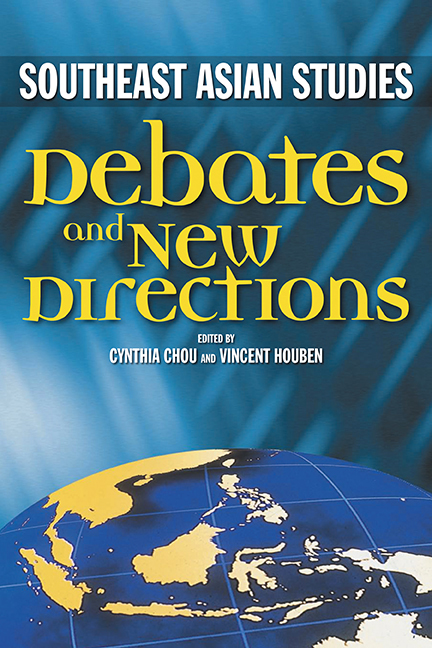Book contents
- Frontmatter
- Contents
- List of Contributors
- Preface
- 1 Introduction
- 2 Southeast Asia: Personal Reflections on a Region
- 3 Region, Academic Dynamics, and Promise of Comparitivism: Beyond Studying ‘Southeast Asia’?
- 4 Towards Multi-Laterality in Southeast Asian Studies: Perspectives from Japan
- 5 The Academic's New Clothes: The Cult of Theory versus the Cultivation of Language in Southeast Asian Studies
- 6 Rethinking Southeast Asian Politics
- 7 Reconceptualizing Southeast Asian Studies
- 8 Southeast Asian History: The Search for New Perspectives
- 9 Film, Literature, and Context in Southeast Asia: P. Ramlee, Malay Cinema, and History
- Bibliography
- Index
Preface
Published online by Cambridge University Press: 21 October 2015
- Frontmatter
- Contents
- List of Contributors
- Preface
- 1 Introduction
- 2 Southeast Asia: Personal Reflections on a Region
- 3 Region, Academic Dynamics, and Promise of Comparitivism: Beyond Studying ‘Southeast Asia’?
- 4 Towards Multi-Laterality in Southeast Asian Studies: Perspectives from Japan
- 5 The Academic's New Clothes: The Cult of Theory versus the Cultivation of Language in Southeast Asian Studies
- 6 Rethinking Southeast Asian Politics
- 7 Reconceptualizing Southeast Asian Studies
- 8 Southeast Asian History: The Search for New Perspectives
- 9 Film, Literature, and Context in Southeast Asia: P. Ramlee, Malay Cinema, and History
- Bibliography
- Index
Summary
The genesis of this volume stemmed from a panel discussion on “Reconceptualizing Southeast Asian Studies” that we convened at the International Convention of Asia Scholars (ICAS 3) in Singapore in 2003. The International Institute for Asian Studies and the National University of Singapore were the co-hosts of this large gathering of research scholars from centres of Asia and Asian Studies from all over the world. The overwhelming turnout for our panel presentation and the lively discussion that ensued clearly indicated that there was widespread interest among the practitioners of Southeast Asian Studies concerning the status and future directions of their field.
This volume thus began with putting together selected material from that panel discussion. To the extent possible, the selected papers have been revised and updated to include recent developments that highlight the role, relevance, and challenges that the field of Southeast Asian Studies faces at the time of this book going to press. For reasons of expense and logistics, it is regrettably the case that there will always be a limit as to the number of our peers and colleagues making it to any one common sitting for an informed discussion. Hence, for the discussion to widen, we invited colleagues who were not present at that particular meeting for their contributions, too.
The discussion during ICAS 3 included many people, all of whom helped us place Southeast Asian studies in a broader perspective. In producing this volume, we want to express our appreciation to Professor Wim Stokhof, Director of the International Institute for Asian Studies, and Mrs Triena Ong, Head of the Publications Unit in the Institute of Southeast Asian Studies (ISEAS), and for their invaluable support in overseeing the production of this book. Grateful acknowledgement is also due to the editorial staff at ISEAS for their skilled attention to the details and design of this volume. We also wish to thank Dr Deborah Johnson, Markus Reichert, and Bettina Schwind for their energy and assistance in tying up the loose ends of this volume.
- Type
- Chapter
- Information
- Southeast Asian StudiesDebates and New Directions, pp. viiiPublisher: ISEAS–Yusof Ishak InstitutePrint publication year: 2006



